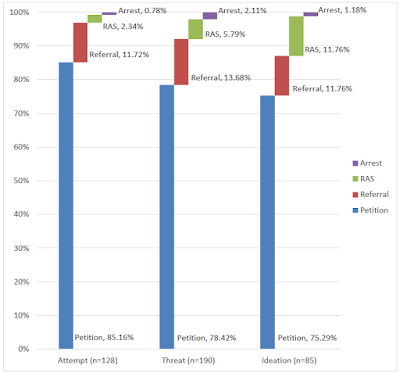[UPDATE (12/22/2018): All three challenged candidates will remain on the ballot this spring. From the
News-Gazette:
The three-person board voted Friday to adopt opinions from city legal staff in the cases of mayoral candidate Azark Cobbs and city council hopefuls Pattsi Petrie and Kenton Elmore.
The objections covered several topics, such as invalid signatures or the candidate filling out the forms improperly.
City Attorney Fred Stavins said in the opinions that while some signatures are invalid, the candidates still had more than enough valid signatures and should stay on the ballot.
Council member Tom Bruno, who was on the electoral board for the Cobbs case, said objections to filings should be taken seriously.
More at the article
here, including further concerns by Bruno with an audio interview clip.]
[UPDATE (12/20/2018): The News-Gazette
pointed out today that the City's legal staff recommended keeping the candidates on the ballot which will likely be accepted by the electoral board tomorrow:
Legal staff: leave Champaign candidates on ballot
Three candidates for Champaign mayor and city council are primed to stay on the April ballot based on a recommendation from city legal staff.
Philip Fiscella is challenging the nominating petitions of Azark Cobbs, who's running for mayor, and Pattsi Petrie, who's running for an at-large council seat. Chris Beaird is objecting to the candidacy of at-large council candidate Kenton Elmore. The objections cover several topics, such as invalid signatures or the candidate filling out the forms improperly.]
City of Champaign:
Electoral Board hearings (
what are these?) are coming up this Friday to decide the remaining petition challenges. Electoral Board Meetings from the
city calendar (more info at link): December 21, 2018, 9:00 am, Council Chambers, 102 N. Neil, Champaign. The News-Gazette had a
blurb on the challenges:
Former longtime Champaign City Council member Michael La Due will stay on the ballot in his bid to return to the council.
The city's electoral board met Tuesday to hear evidence on candidate objections, and Assistant City Attorney Jennifer Bannon said Philip Fiscella dropped his objection to La Due's nominating petitions for an at-large council seat.
Three other ballot challenges remain. Fiscella is also objecting to petitions filed by Pattsi Petrie, who's also running for an at-large seat, and Azark Cobbs, who's running for mayor. Also, Chris Beaird is objecting to petitions filed by at-large council candidate Kenton Elmore.
City legal staff will now draft opinions on each case, and the electoral board will vote on them Friday morning. For more general election calendar information for candidates (filing, challenge, etc dates) there's a calendar for the primary and general
here at the County Clerk website.
Champaign / Unit 4 and Urbana District 116 School Board:
From the
County Clerk Website and
the News-Gazette:
Champaign Unit School District 4
- Amy Armstrong
- Elizabeth A Sotiropoulos
- Jennifer Enoch
- Lee McDonald
- Christopher Kloeppel
- Michael Foellmer
- Kathy Shannon
- Sergio Gonzalez
- Alicia R. Robinson
Champaign school board: 4 seats open
— Incumbents: Amy Armstrong, Chris Kloeppel, Kathy Shannon.
— Challengers: Jennifer Enoch, Michael Foellmer, Sergio Gonzalez, Lee McDonald, Alicia Robinson, Elizabeth Sotiropoulos.
— Sitting out: Kathy Richards won't run for a second term.
and...
Urbana Unit School District 116
- Paul Poulosky - Sub District 6
- Anne Hall - Sub District 4
- Torionna L. Exum - Sub District 2
- Felipe Menanteau - Sub District 6
- Karie Brown-Tess - Sub District 4
Urbana school board: 3 seats open
— Incumbents: Anne Hall (Sub-District 4), Paul Poulosky (Sub-District 6).
— Challengers: Tori Exum (Sub-District 2), Karie Brown-Tess (4), Felipe Menanteau (6).
— Sitting out: Benita Rollins-Gay (2) isn't running for re-election.
The News-Gazette article also had some additional information on Champaign and Urbana Park District Board and Parkland Trustee Candidates:
Parkland College Board of Trustees: 3 seats open
— Incumbents: Bianca Truitt Green and Jonathan Westfield for the two six-year terms; Jim Ayers for the lone four-year term.
— Challenger: Doug Jones for a six-year term.
Champaign Park District Board: 1 seat open
— Incumbent: Tim McMahon
— Challenger: DeShawn Williams
Urbana Park District Board: 2 seats open
— Incumbents: Roger Digges, Michael Walker.
— Challenger: Cedric Stratton.
[Updated: Originally posted 12/19/2018 at 8:26am]






















